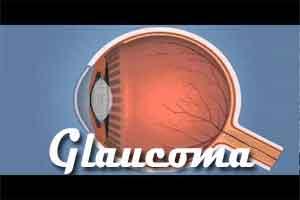- Home
- Editorial
- News
- Practice Guidelines
- Anesthesiology Guidelines
- Cancer Guidelines
- Cardiac Sciences Guidelines
- Critical Care Guidelines
- Dentistry Guidelines
- Dermatology Guidelines
- Diabetes and Endo Guidelines
- Diagnostics Guidelines
- ENT Guidelines
- Featured Practice Guidelines
- Gastroenterology Guidelines
- Geriatrics Guidelines
- Medicine Guidelines
- Nephrology Guidelines
- Neurosciences Guidelines
- Obs and Gynae Guidelines
- Ophthalmology Guidelines
- Orthopaedics Guidelines
- Paediatrics Guidelines
- Psychiatry Guidelines
- Pulmonology Guidelines
- Radiology Guidelines
- Surgery Guidelines
- Urology Guidelines
Lifestyle changes that help prevent Glaucoma: AAP

SAN FRANCISCO: According to American Academy of Opthalmology lifestyle choices may also help minimize the risk of losing vision to glaucoma beyond drugs and surgery .
According to the ophthalmic academy , inculcating certain habits help decrease risk of glaucoma, like
- Exercise regularly. A study just published in Ophthalmology, the journal of the American Academy of Ophthalmology, showed that people who engaged in physical activity can slow vision loss from glaucoma.
- Meditate. A new study published last month in the Journal Glaucoma showed that a relaxation program with meditation can lower eye pressure in glaucoma patients and improve their quality of life by lowering stress hormones like cortisol.
- Don't use CBD as a "natural" glaucoma remedy. CBD, or cannabidiol, is the non-psychotropic component of cannabis and hemp being touted as a magical cure-all. A study published last month in Investigative Ophthalmology & Visual Science shows it actually raised eye pressure in mice.
- Eat a diet rich in fruits and vegetables, especially green, leafy ones. One study showed that people who ate more leafy vegetables have a 20 to 30 percent lower risk of developing glaucoma. Why? Nitrates in green vegetables can be converted to nitric oxide, which can improve blood flow and help regulate pressure inside the eye.
- Don't smoke. Smoking cigarettes increases the risk of glaucoma and has an overall negative impact on eye health.
- Maintain a healthy body weight. People with a higher body mass index (BMI) are at increased risk for diabetes, and having diabetes puts people at risk of glaucoma. Having a too low BMI is also associated with increased glaucoma risk.
The American Academy of Opthamology suggested that everyone should have comprehensive eye exam at the age of 40 where opthmologists thoroughly examine the eye for signs of damage and various other problems that may affect the eyesight
Besides this the statement also says individuals at greater risk for developing glaucoma include people:
- over age 40;
- of African, Asian or Hispanic heritage;
- who have high eye pressure detected during an eye exam;
- who are farsighted or nearsighted;
- who have experienced eye trauma or eye injury;
- whose corneas are thin in the center;
- or who have health problems such as diabetes, migraines, high blood pressure or poor blood circulation or other health problems affecting the whole body
Glaucoma is a complex disease damaging the optic nerve leading to progressive , irreversible vision loss. Glaucoma is the second leading cause of blindness affecting about 3 million people in the United States. Unawareness of premature peripheral vision loss , a patient ends up losing most of it prior to be detected with Glaucoma.
“Patients are often surprised when their ophthalmologist tells them they have glaucoma because they don't have symptoms," said Dianna Seldomridge, M.D., a clinical spokesperson for the American Academy of Ophthalmology. "That's why it's so important to have your eyes examined regularly; to detect the signs of disease you don't see. The good news is that today's innovative treatments and surgical techniques are better than ever."

Disclaimer: This site is primarily intended for healthcare professionals. Any content/information on this website does not replace the advice of medical and/or health professionals and should not be construed as medical/diagnostic advice/endorsement or prescription. Use of this site is subject to our terms of use, privacy policy, advertisement policy. © 2020 Minerva Medical Treatment Pvt Ltd